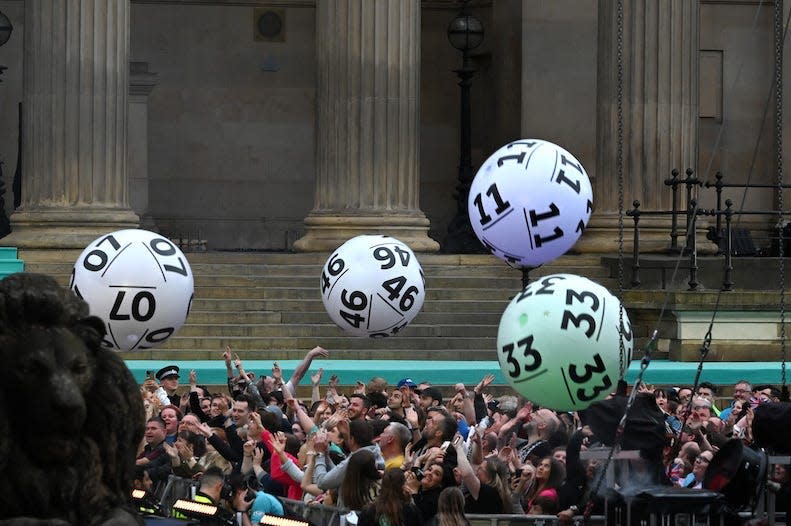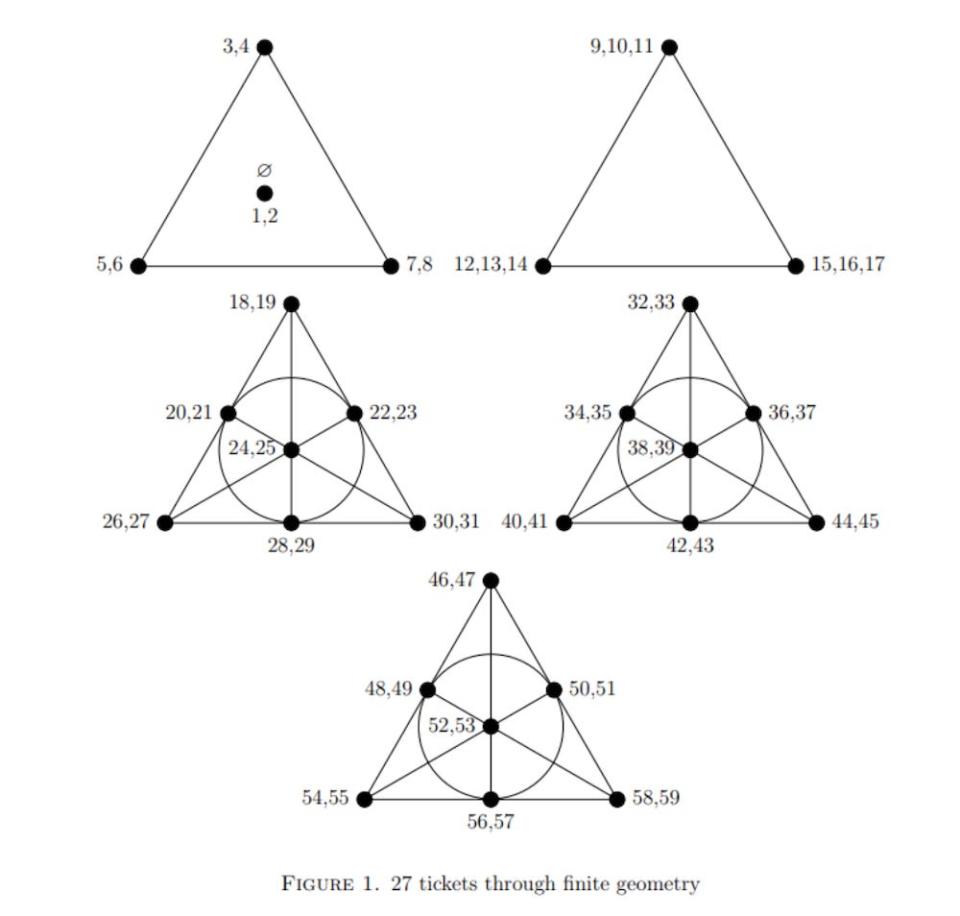British mathematicians say they've figured out how to guarantee a lottery win by buying 27 tickets

These 27 sets of numbers are guaranteed a win in the UK's National Lottery, mathematicians said.
They calculated that those tickets, costing about $69, covered all bases for a minimum win.
But it's still overwhelmingly likely to cost more than it gets you in winnings, they added.
Mathematicians in the UK said in a paper published in July that they had figured out how many tickets you would have to buy to guarantee winning in the country's National Lottery — 27.
Unfortunately, that doesn't mean you're guaranteed to win enough to cover the cost of the tickets, the mathematicians said.
The UK's National Lottery's main game, the Lotto, is held twice weekly, with six numbers from one to 59 randomly drawn. In December, the lottery organizers announced that its latest jackpot was set to hit a record, tax-exempt $28.9 million. The chances of winning it are about 1 in 45 million.
Two mathematicians, David Stewart and David Cushing, at the University of Manchester can't snag you a jackpot — but in the July paper, they said they at least worked out the minimum number of tickets needed to be assured of any win, even if it's just a free play.
They devised a list of 27 specific tickets that, in mathematical terms, covered all the bases to yield some sort of win. They've published those (below), though according to the New Scientist, they've since found further sets of numbers that also meet the criteria.

With each ticket costing £2, or about $2.50, that's £54 in outlay.
In any given Lotto game, getting two of the numbers right wins the player a free ticket, while getting three of them wins about $38. All six, and you've won a share of the jackpot.
To find the combinations, researchers used a mathematical system called finite geometry, which involves plotting the numbers one to 59 in pairs or triplets on a series of geometric shapes.
Each number set is then connected with lines, generating a series of six numbers — equaling one ticket. It takes 27 of those to cover all 59 numbers and guarantee at least one pair will match, they said.

Another mathematician, Peter Rowlett, at the UK's Sheffield Hallam University, has said that in 99% of cases, people using these numbers still won't get their money back.
And, of course, the more people who play the above sets of numbers, the more people have to share any jackpot that may result.
In one rare instance, a member of Stewart and Cushing's research group managed to win $2,243 with the 27 numbers, they told the New Scientist.
"He's incredibly lucky with it," Cushing said — though the colleague still hasn't bought them lunch to say thanks, he added.
The pair themselves aren't exactly cashing in. When they tested the 27 tickets in July, they matched two balls on three tickets. That won them three free tickets — which promptly came out to nothing.
Despite their number crunching, the mathematicians say they're not interested in using the combinations themselves anymore.
"I came to the conclusion that whenever we were involved, they didn't make any money, and then they made money when we decided not to put them on," Cushing told the New Scientist. "That's not very mathematical, but it seemed to be what was happening."
Read the original article on Business Insider

 Yahoo News
Yahoo News 
